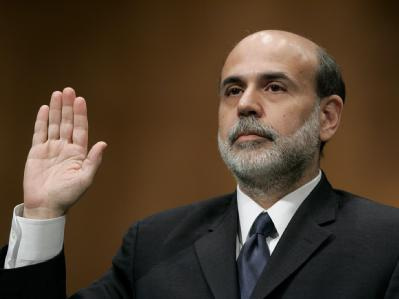“Operation Twist” Has Yet To See Positive Results

So far, the Fed's plan to keep interest rates low, AKA "Operation Twist,” hasn't lived up to its expectations.
But experts agree that might not be a bad thing.
Ben Bernanke and the Federal Reserve announced “Operation Twist” a little less than a month ago. The plan would sell $400 billion of the Fed’s shorter-term securities to buy long-term holdings.
The day after the plan was announced, the 10-year yield plunged to an all-time intraday low of around 1.7 percent, according to CNN Money.
Tuesday, the yield was at 2.17 percent, the highest it has been in more than a month. Both 10-year and 30-year yields have reached levels they were at before the Fed announced “Operation Twist.”
If the trend continues, rising long-term yields are a sign that the Fed has lost its ability to control long-term interest rates, according to Seeking Alpha, a stock market blog. It may also be taken as an indication that the Fed cannot stimulate the economy without generating large amounts of inflation.
According to Seeking Alpha, there are two options for the Fed if long-term Treasury yields continue to rise, the stock market falls and real GDP decelerates: The Fed could abandon the program of monetary stimulus and bring inflation under control or also accelerate monetary stimulus, which may increase inflation.
Some bond experts, however, told CNN Money that rates rising “should not be something for Ben Bernanke to lose sleep over.” They said that interest rates are usually low in uncertain economies, but right now is not low.
"Economic data in the U.S. is not great, but it's not pointing to a recession yet," Leslie Barbi, head of fixed income with RS Investments in New York told CNN Money. "The numbers are not strong enough to get yields back above 2.25 percent, but not weak enough to go toward 1.5 percent either."
The 10-year yield never fell bellow 2 percent in late 2008/early 2009 when there were fears about the U.S. economy and global banking. Many invested in Treasuries, which pushed yields lower.
Last Friday’s job numbers and the increased likelihood that Europe will help Greece and banks is making it hard to predict deflation and depression, according to CNN Money.
Experts also said that if more good news comes out of Europe, or Americans simply stop hearing bad news, rates are not likely to fall again.
"The U.S. is likely to experience subpar rates of both growth and inflation for several years," Steve Van Order, fixed income strategist with Calvert Investments in Bethesda, Maryland told CNN Money. "But the market discounted some really bad news. A 1.7 percent 10-year yield is not appropriate for just a weak growth outlook."
Even though “Operation Twist” was announced almost a month ago, the Fed did not begin to make long-term bond purchases until last week. Rates could still rise, but are unlikely to get prohibitively high.
Van Order said that even if rates rise a little, he would not see “Operation Twist” as a failure or think the Fed should take action.
"If rates rise because the U.S. outlook gets better and there is improving sentiment regarding the European debt crisis, then Operation Twist is not a failure. Even if the 10-year gets back to around 2.5 percent, that's still low," Van Order told CNN Money.
Aris Protopapadakis, an associate professor of finance and business economics at the University of Southern California, said that the operation was not a total failure, but not a success either.
“The idea was to lower the long-term rates, since the short-term rates can’t really go much lower. In 2011 both short and long-term rates, 1-year and 10-year, have headed down,” Protopapadakis said. “In that sense, and only in that sense, the operation was not a failure; perhaps it would have been classed as a success if only the long-term rates headed down, but if you count success by the economy’s response, then things haven’t improved much if at all and maybe they’ve become worse."
Protopapadakis said that it is to soon for a fall in the rates to have a measurable effect, or for "Operation Twist" to be blamed for current economic problems.
“The fall in the rates may have more to do with the declining forecasts and increasing gloom for the economy and much less to do with the ‘Operation Twist,’” Protopapadakis said. “If I am correct, the rate declines are not caused by the Fed and they are more likely to forecast continuing weakness.”
He also said that "Operation Twist's" success should be judged by whether the rates are below where they would have been with the program's absence, something that is nearly impossible to do.
Reach associate news editor Hannah Madans here.
Best way to find more great content from Neon Tommy?
Or join our email list below to enjoy the weekly Neon Tommy News Highlights.



